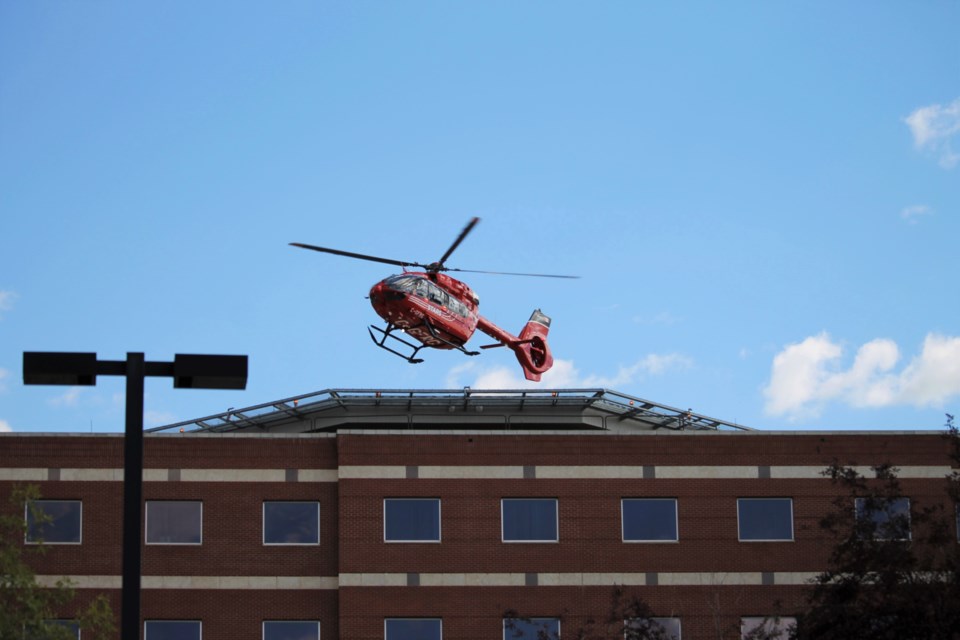REGINA — Leading officials in Saskatchewan’s COVID-19 response said that ICU capacity has reached a critical limit, and requests for help have been extended to both the federal government and multiple other provincial and U.S. neighbours.
Ontario health authority officials first confirmed this morning that six COVID-19 patients from Saskatchewan will be airlifted to six different hospitals to receive out-of-province ICU care this week.
Saskatchewan officials later confirmed the same, stating the decision was made after ICUs surpassed the set threshold of 116 patients this weekend.
The first Sask. patient is set to arrive in Ontario today, with the remainder expected by Wednesday.
Saskatchewan is reporting a total of 124 patients receiving ICU care in the province on Monday, with 85 of those individuals identified as COVID-19 patients.
Derek Miller, chief of emergency operations with the health authority, said that the leading factor in the decision to transfer critically ill patients outside of Saskatchewan is a lacking availability of ICU-trained staff.
“Our teams are under significant strain and have been under those conditions for a number of weeks now, trying to sustain a high surge capacity,” said Miller.
Over 180 staff from across the health authority have been redeployed into ICU settings, said Miller, and additional bed spaces have been made in non-treatment areas to offer 150 per cent of normal capacity.
“We have a finite number of critical care staff in our system [and] we want to be sure we can provide the right level, the quality of care to patients,” said Miller.
Miller confirmed that the provincial government will foot the bill for out-of-province care, as well as travel and accommodation costs for up to two family members or support individuals.
He estimated the price tag for one patient transfer to be in the ballpark of $20,000, not including patient repatriation fees and travelling costs for the family.
Patients headed to Ontario will remain in care there until recovery, although Miller indicated that should Saskatchewan’s ICU capacity improve, patients may be able to return to their home province to finish recovering.
He could not say whether Ontario will be able to receive more Saskatchewan patients in the future.
Miller also said that despite reaching the threshold for transferring patients out of province, the emergency triage plan remains at Stage One, where it has been for several weeks.
Sask. requesting help from Canada, U.S. neighbours
Marlo Pritchard, lead at the Provincial Emergency Operations Centre, also confirmed that the PEOC has extended requests for help to jurisdictional partners within several emergency management agreements spanning all of North America.
Pritchard said these requests have gone out to Canadian provinces, as well as a number of U.S. states, seeking the provisional deployment of specially trained critical care personnel, including ICU nurses and perfusionists.
As of Monday, Montana, Michigan, North Dakota and Pennsylvania have responded saying they are unable to help.
Pritchard also noted that the health systems in Alberta and Manitoba are similarly strained due to COVID, and not expected to be able to provide aid.
An official request to the federal government requesting support resources and staff was also sent this morning, according to the PEOC, after requests to the emergency agreements failed to produce results.
Previous declarations from the federal government indicated that supports could take time to deploy, which Pritchard said the province understands.
“We recognize that resources across Canada, and across North America, are very limited, especially around those skilled individuals that are needed for ICU support,” said Pritchard. “And we have to be realistic.”
Pritchard said that he doesn’t know what the federal government will be able to provide or when resources may begin to arrive, as those discussions have just begun.




